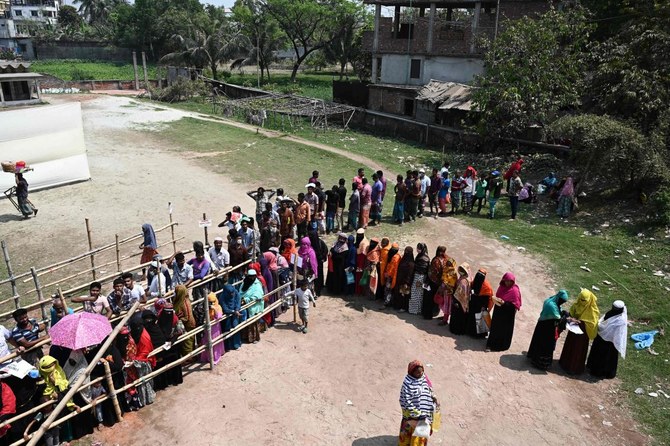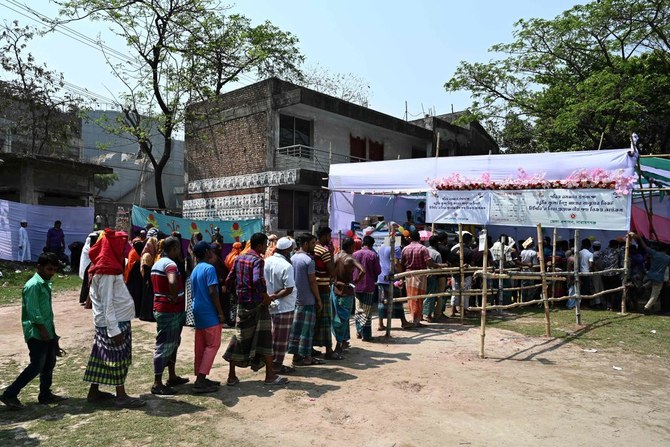FATULLAH: Bangladesh launched a nationwide food subsidy program on Sunday after prices for cooking oil, lentils and other staples shot up in the wake of Russia’s invasion of Ukraine.
Rising produce costs, which officials blame on wild price fluctuations in the global oil market since the conflict began, have sparked murmurings of discontent around the South Asian nation of 170 million people in recent weeks.
Opposition activists have accused traders of profiteering and staged several protest rallies, with a nationwide strike against soaring prices planned for the end of the month.
Commerce ministry chief Tapan Kanti Ghosh said the program would provide cheap food to 10 million people and run until the end of Ramadan — the traditional month of fasting in the Islamic faith — in six weeks.
“The Ukraine war has increased crude oil prices, which have impacted global commodity prices,” he told AFP.
Hundreds of people were seen queuing in the scorching sun waiting for rations on the first day of the scheme in Fatullah, an industrial center on the outskirts of the capital Dhaka.
Mosharraf Hossain, a local helmsman, said he had to wait for four hours before making his purchase.
“Still it is worthy. The price hike in the regular market is unbelievable,” he told AFP.
Hossain said business owners had told him the “ongoing war near Russia” was the reason they had raised the price of their goods, but he was skeptical.
“Rice, lentils and sugar are mostly produced in our country,” he said. “Is the war here in Bangladesh? This is pure bluff.”


Bangladesh launches food subsidies after Ukraine war price spike
Short Url
https://arab.news/nydrf
Bangladesh launches food subsidies after Ukraine war price spike

- Rising produce costs, which officials blame on wild price fluctuations in the global oil market since the conflict began, have sparked murmurings of discontent
- Opposition activists have accused traders of profiteering and staged several protest rallies
Rohingya ‘targeted for destruction’ by Myanmar, Gambia tells ICJ

THE HAGUE: Myanmar's military deliberately targeted the Rohingya minority in a bid to destroy the community, Gambia's Justice Minister Dawda Jallow told the International Court of Justice on Monday.
"It is not about esoteric issues of international law. It is about real people, real stories and a real group of human beings. The Rohingya of Myanmar. They have been targeted for destruction," Jallow told ICJ judges.
Gambia has dragged Myanmar before the ICJ, claiming its 2017 crackdown against the Rohingya minority was in breach of the 1948 UN Genocide Convention.
© 2026 SAUDI RESEARCH & PUBLISHING COMPANY, All Rights Reserved And subject to Terms of Use Agreement.

















